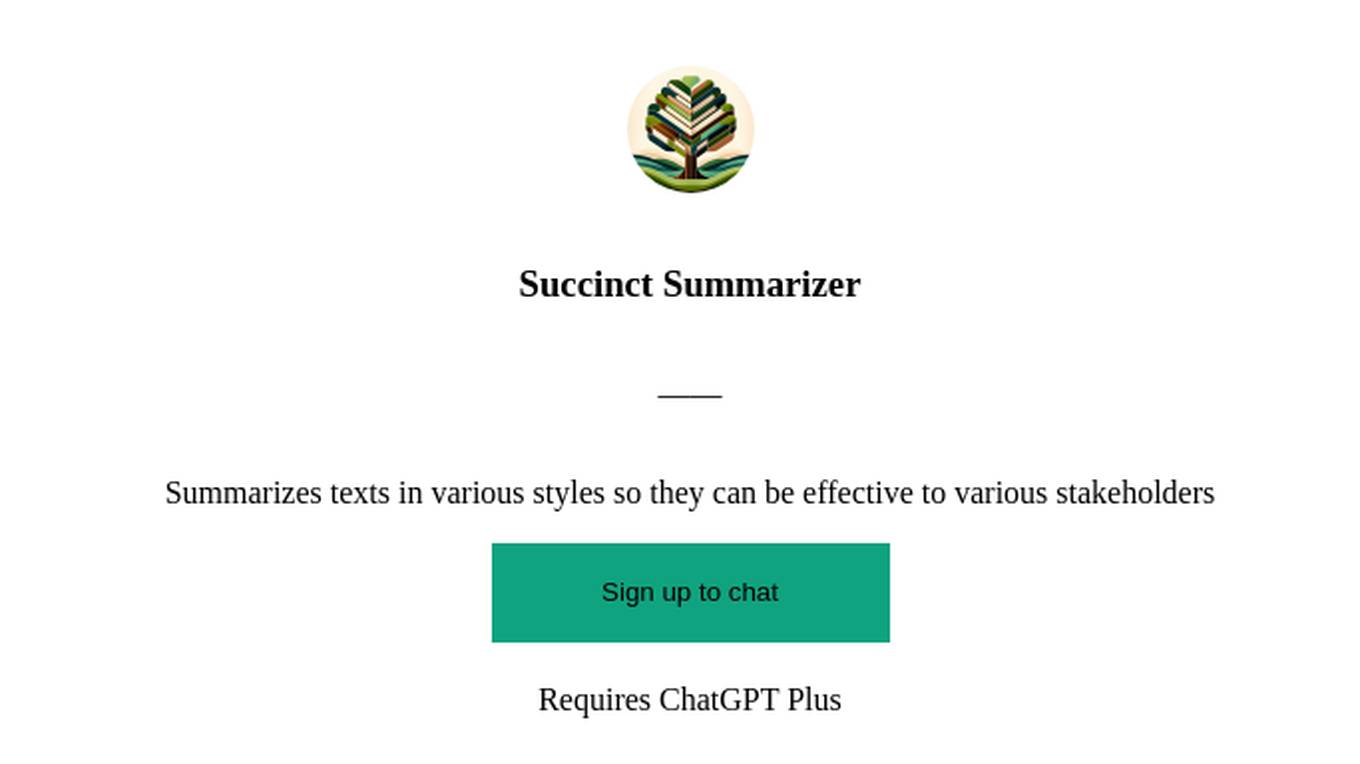Best AI tools for< Sum Up Research Findings >
0 - AI tool Sites
No tools available
0 - Open Source AI Tools
No tools available
1 - OpenAI Gpts

Succinct Summarizer
Summarizes texts in various styles so they can be effective to various stakeholders
gpt
: 20+